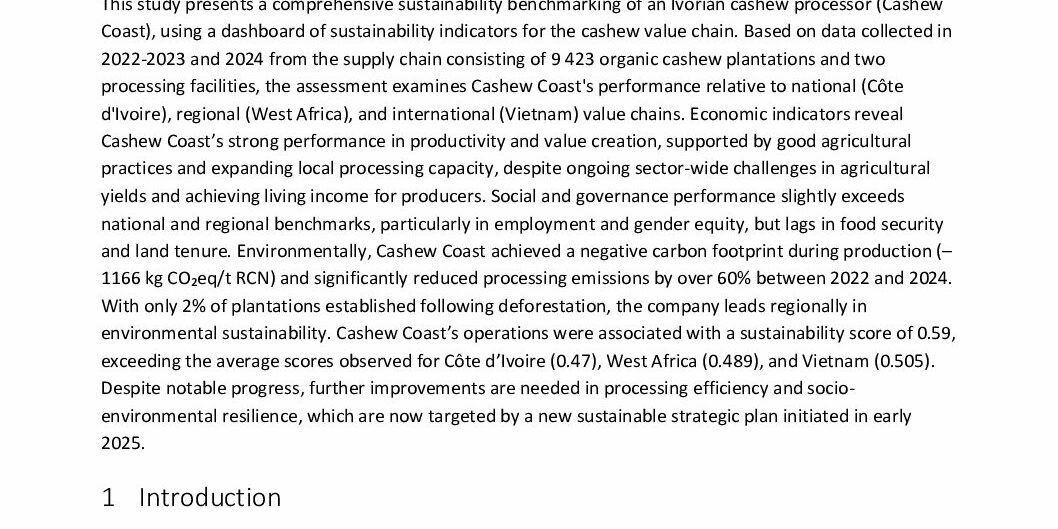This study presents a comprehensive sustainability benchmarking of an Ivorian cashew processor (Cashew Coast), using a dashboard of sustainability indicators for the cashew value chain. Based on data collected in 2022-2023 and 2024 from the supply chain consisting of 9 423 organic cashew plantations and two processing facilities, the assessment examines Cashew Coast’s performance relative to national (Côte d’Ivoire), regional (West Africa), and international (Vietnam) value chains. Economic indicators reveal Cashew Coast’s strong performance in productivity and value creation, supported by good agricultural practices and expanding local processing capacity, despite ongoing sector-wide challenges in agricultural yields and achieving living income for producers. Social and governance performance slightly exceeds national and regional benchmarks, particularly in employment and gender equity, but lags in food security and land tenure. Environmentally, Cashew Coast achieved a negative carbon footprint during production (–1166 kg CO₂eq/t RCN) and significantly reduced processing emissions by over 60% between 2022 and 2024. With only 2% of plantations established following deforestation, the company leads regionally in environmental sustainability. Cashew Coast’s operations were associated with a sustainability score of 0.59, exceeding the average scores observed for Côte d’Ivoire (0.47), West Africa (0.489), and Vietnam (0.505). Despite notable progress, further improvements are needed in processing efficiency and socio-environmental resilience, which are now targeted by a new sustainable strategic plan initiated in early 2025.

File Type:
pdf
File Size:
612 Ko
Categories:
Scientific publications

